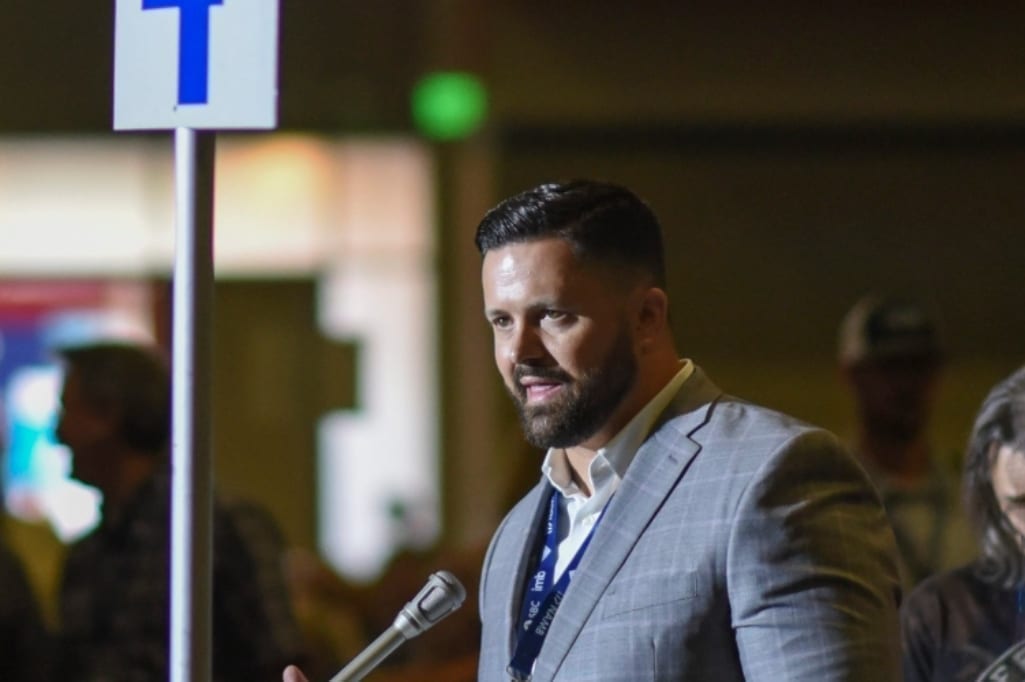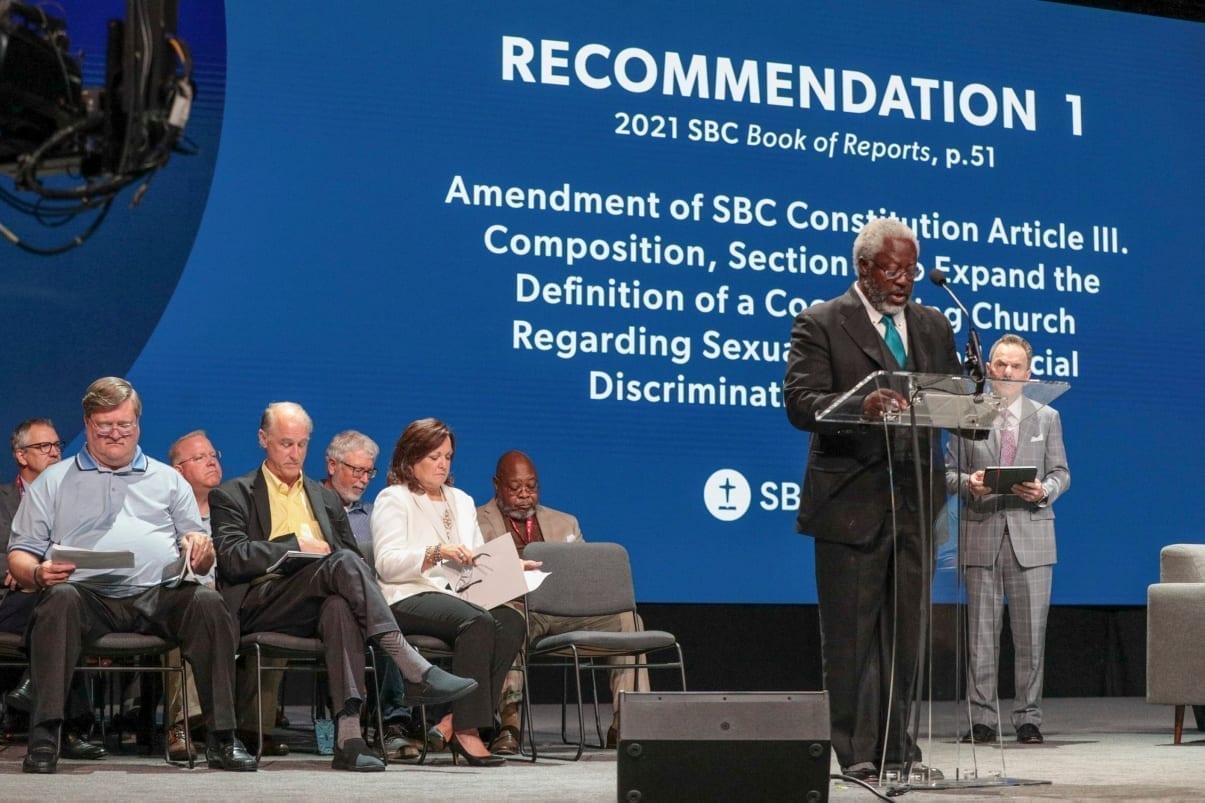In the wake of any democratic process, analysts scour voter data and election returns in search of meaning. Strong ballots and obvious trends are often interpreted as mandates for leaders to act in accordance with the peoples’ wishes.
At the Southern Baptist Convention’s (SBC) 2021 annual meeting, an unusually high number of messengers spoke loud and clear with their votes. Great Commission Baptists will do what it takes to make their churches safer from sex abuse.
The two-day business meeting is known as the largest deliberative body in the world. Its policies and procedures, guided by Robert’s Rules, are intentionally slow and fair. More than a half-dozen reform efforts took advantage of the parliamentary levers to enact stronger protective measures and promote greater transparency.
We redefined our standards for cooperation
In what is likely the most sweeping and profound change, messengers voted to finalize a years-long procedure that revised the SBC Constitution so that churches who ignore sex abuse or engage in racial discrimination are no longer considered in friendly cooperation. The initiative required a two-thirds vote at two consecutive annual meetings. It passed with no apparent opposition on the floor. That’s a big deal.
The amendment gives our credentials committee a foundation on which to stand as they inquire into allegations of misconduct and negligence. And we all get a slightly clearer picture of who we are as a family of churches.
We spoke up about pastoral qualifications
The SBC Resolutions Committee put forward a brief but potent resolution on sex abuse and the qualifications of pastors. The statement, which passed handily, advocated for permanent disqualification from ministry any person guilty of sex abuse.
Various messengers went to the microphones with questions – and rightly so – about what the resolution would imply about God’s ability to redeem broken sinners. Even so, I believe we would all agree the document encourages congregations to hold the line on biblical requirements and lofty standards for those leading our flocks. We cannot put predators in our pulpits.
We chose a better vision
SBC Executive Committee (EC) president Ronnie Floyd proposed “Vision 2025,” a seemingly comprehensive five-part strategy for renewing the convention’s fervency, focus and funding. The proposal came with support and anticipation from EC members and staff.
Untold amounts of time and money were spent in preparation. Marketing materials were created in advance of its near-certain approval – from massive banners hanging in the convention hallway to branded apparel for staff. Yet, messenger Ben Cole from Prestonwood Baptist Church in Plano, Texas, asked his fellow Baptists to consider a simple change in the vision to fill a gaping hole.
Five strategic actions were not enough. Messengers wanted a sixth, to eliminate sex abuse and racial discrimination in our churches. Ballots went up. Great Commission Baptists insisted that safer churches are a key tenet of our work together.
We insisted on more transparency
In early June, two personal letters written by former Ethics & Religious Liberty Commission (ERLC) president Russell Moore were leaked by unnamed sources. In the documents, Moore alleged that EC members had resisted sex abuse reform initiatives, mistreated survivors and engaged in patterns of intimidation. Southern Baptists immediately began calling for an investigation.
Tennessee pastor Grant Gaines and North Carolina pastor Ronnie Parrott said they would propose a motion at this year’s annual meeting to initiate an independent, third-party review of the EC in light of Moore’s allegations.
Then, just days before the annual meeting, Moore’s former executive vice president, Phillip Bethancourt, released a “whistleblower report” that included audio recordings of closed-door comments made by Floyd and the SBC Executive Committee chairman at the time, Mike Stone. Appeals for an investigation became a groundswell.
Floyd announced he would hire a firm to conduct the review, but some survivors and advocates were skeptical about the EC overseeing an investigation into itself. As the EC met on June 14, just prior to the SBC annual meeting, EC member Jared Wellman proposed an amendment to the meeting agenda to allow time for considering measures that would strengthen the proposed inquiry and promote transparency.
“Horrific” is how North Carolina EC member Joe Knott described the idea of giving an outside firm free rein and a blank check, because he believed it would “destroy” the voluntary nature of Baptist partnerships. Wellman’s proposal was voted down by a majority of EC members. But when the SBC gaveled into session, Gaines and Parrott were determined to see it through.
“These are not the kind of allegations we can sweep under the rug,” Gaines said to messengers as he formally proposed the investigation. “This might seem like too much trouble to some, but I can assure you it is the least we can do to care for survivors. … It is worth it because abuse survivors are worth it.”
The SBC’s committee on the order of business decided to refer the Gaines-Parrott motion to the EC, which meant the EC, yet again, would again be in charge of handling the investigation of itself. Language in the proposal stipulated that a task force would be formed by the newly elected SBC president within 30 days to oversee the hiring of an independent firm to conduct the investigation.
Indiana pastor Todd Benkert challenged the referral and offered a motion to let messengers decide. The room affirmed Benkert’s motion, overruling the committee on the order of business and the Gaines-Parrott motion went to the floor for discussion.
Gaines briefly spoke again in favor of the motion to investigate the EC. Floyd went to a microphone on stage, and according to standard procedure, should have spoken against the motion on behalf of the EC. But despite a majority of his committee members voting two days prior to reject some of the very same measures that would strengthen the investigation, Floyd said, “We know this will make our convention stronger. That is what I want.”
Messengers made their stand exceedingly clear, voting in favor of the third-party investigation almost unanimously. Southern Baptists navigated a complex series of procedural hoops to demand truth and transparency. Our leaders, especially those on the SBC Executive Committee, should take note.
Now, we must act responsibly with the information we receive
Two additional motions were referred to the ERLC, which will likely uncover more information about sex abuse and responses to sex abuse in Southern Baptist circles than any other initiatives to date.
Benkert successfully proposed a motion to have the ERLC hire an outside firm to conduct a three-year audit and assessment of sex abuse and mishandling of sex abuse in Southern Baptist churches. This effort will likely return data from a wide swath of congregations. Ideally, the report will serve as a reference point to judge the severity of the problem in our midst.
Florida messenger Jared Longshore moved to have the newly elected SBC president appoint a task force that would investigate the ERLC staff and trustees regarding anything they saw or heard behind closed doors among Southern Baptist leaders related to mishandling sex abuse allegations, mistreatment of survivors or racism.
Longshore did so because, as he has stated on social media, he believes the issues either weren’t as bad as Moore described or Moore concealed misconduct. Even still, the investigation will almost certainly uncover additional documents or recordings that could lead to more transparency about how a sex abuse crisis was handled at the highest levels of SBC leadership.
My prayer in the wake of the 2021 SBC annual meeting is that we acknowledge these key action steps, but do not lose momentum. Survivors deserve the best. The vulnerable among us deserve the best. Our Lord deserves the best.
Let’s do what it takes to make our churches safer from abuse, for our good and for God’s glory.


